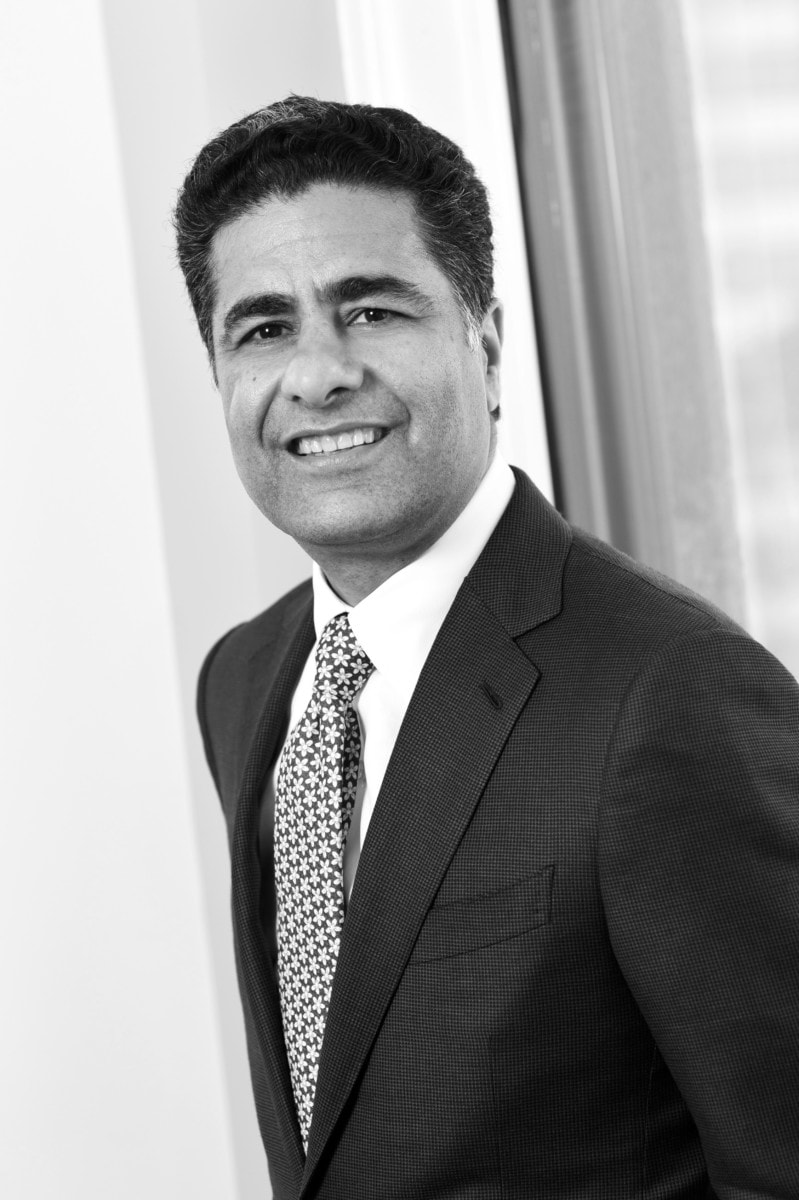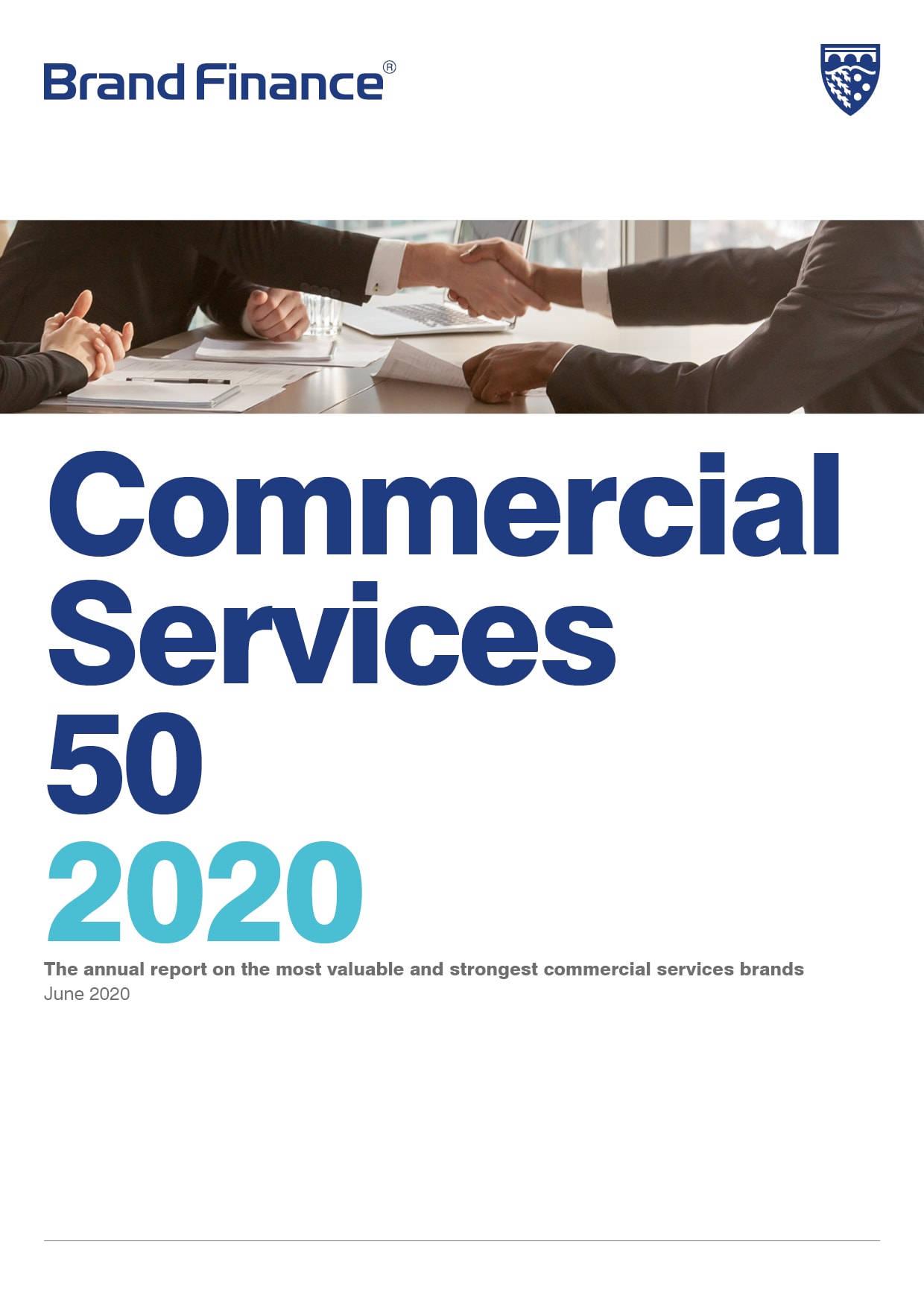Deloitte became the most valuable commercial services brand in the world in 2020. Deloitte CEO Punit Renjen shares his thoughts on a year like no other in our Brand Finance Commercial Services 50 2020 report.
Around the world, people are experiencing what feels like once-in-a-lifetime disruption. The COVID-19 pandemic has taken hundreds of thousands of lives and put tens of millions of people out of work. Meanwhile, the backlash against centuries of racial inequity and injustice has reached a tipping point—filling streets that were empty just a month ago with people of all backgrounds, united in demanding change.

This disruption has upended businesses both big and small. Business leaders have played—and must continue to play—a major role in helping the world respond to, recover from, and thrive after the pandemic.
And as we do, we must work to ensure that our next normal is a better, more equitable, more sustainable one. Because going back to business as usual would be a mistake.
It is likely also impossible. Organisations are already beginning to discover that the world to which they hoped to return no longer exists, that the behaviours and preferences of their employees and customers have fundamentally changed, and that relying on conventional wisdom—falling back on old plans and dated playbooks—no longer works.
So how can leaders prepare their organisations, and their brands, for the future, whatever the future may hold? I believe success will come down to two things: building trust and embracing change.
Even before the pandemic began, the mass population had lost trust in the collective systems—businesses, government, media, and non-governmental organisations—they had come to rely on. Few considered any of these institutions both competent and ethical—critical ingredients for trust1. Further, many people around the world felt pessimistic about their economic prospects and feared being left behind1.
To rebuild our brands, then, we must rebuild trust.
Trust is actionable and human. And it’s nurtured along four dimensions: There’s the trust that your physical space is safe; the trust that your emotional and societal needs are being safeguarded; the trust that your financial concerns are being served; and the trust that your digital information is secure.
In the workplace, all four start at the interpersonal level. Trust begins when leaders thoughtfully consider how to reengage employees by, for example, reconfiguring an office layout to meet social distancing guidelines, or making a significant effort to preserve as many jobs as possible in tough times—even at the expense of profits.
It also extends beyond employees, to an organisation’s customers, clients, and community members. Adding and enhancing security measures to protect customer data from cyber threats builds trust. Addressing inequities that exist within our communities builds trust, too.
Businesses have a critical role to play in addressing such inequities. At Deloitte, we know we can do better on diversity and inclusion. We have more men than women in leadership roles, and we do not have enough diversity—of race, sexuality, gender identity, and more—across our organisation. We are taking steps to do better by increasing the recruitment and advancement of underrepresented groups, addressing potential unconscious biases, and cultivating a more inclusive environment.
And separate from Deloitte itself, in the communities where we live and work, we know that access to quality education and job opportunities has not been equal. This ultimately contributes to the lack of diversity in the workforce generally. So, we are encouraging our people to mentor members of their communities, working with non-profit organisations focused on education, and engaging in dialogues about the effects of systemic racism.
After all, at its core, a brand is a promise. And Deloitte’s promise is to make an impact that matters. For us to deliver on it, we have to earn and keep the trust of our employees, clients, and community members.
But building trust is only half the equation. The other half, just as critical to recovering from and thriving after a crisis, is embracing change to create the next normal.
It’s simple: Resilient leaders are agile leaders, people who are unafraid to integrate new attitudes, beliefs, and structures into their organisations’ DNA. Because they know that doing so will help them not just recover lost ground, but catapult forward—quickly.
Many leaders demonstrated just this kind of agility in the early days of the COVID-19 crisis. From enacting remote-work arrangements, to offshoring entire business processes to less-affected geographies, to initiating cross-company cooperation to redeploy furloughed employees across sectors, they changed their business models—in some cases, literally overnight.
As we move from responding to the COVID-19 crisis to recovering from it and, eventually, to thriving after it, we must continue to adapt to and welcome change.
Fortunately, we can learn from those who’ve gone before us. Throughout history, people and organisations have responded to crises by putting the common interest ahead of special interests. Leaders listened, then they led. People trusted them, then they followed. And as a new social contract was created, people overcame obstacles they once thought insurmountable—using each challenge to elevate themselves and their nation2.
That same potential exists today. As countries and economies begin opening up, we have the chance to use what we’ve learned to usher in a new and better normal. If we build trust and embrace change, we can do more than just rebuild our brands— we can reimagine the world.

